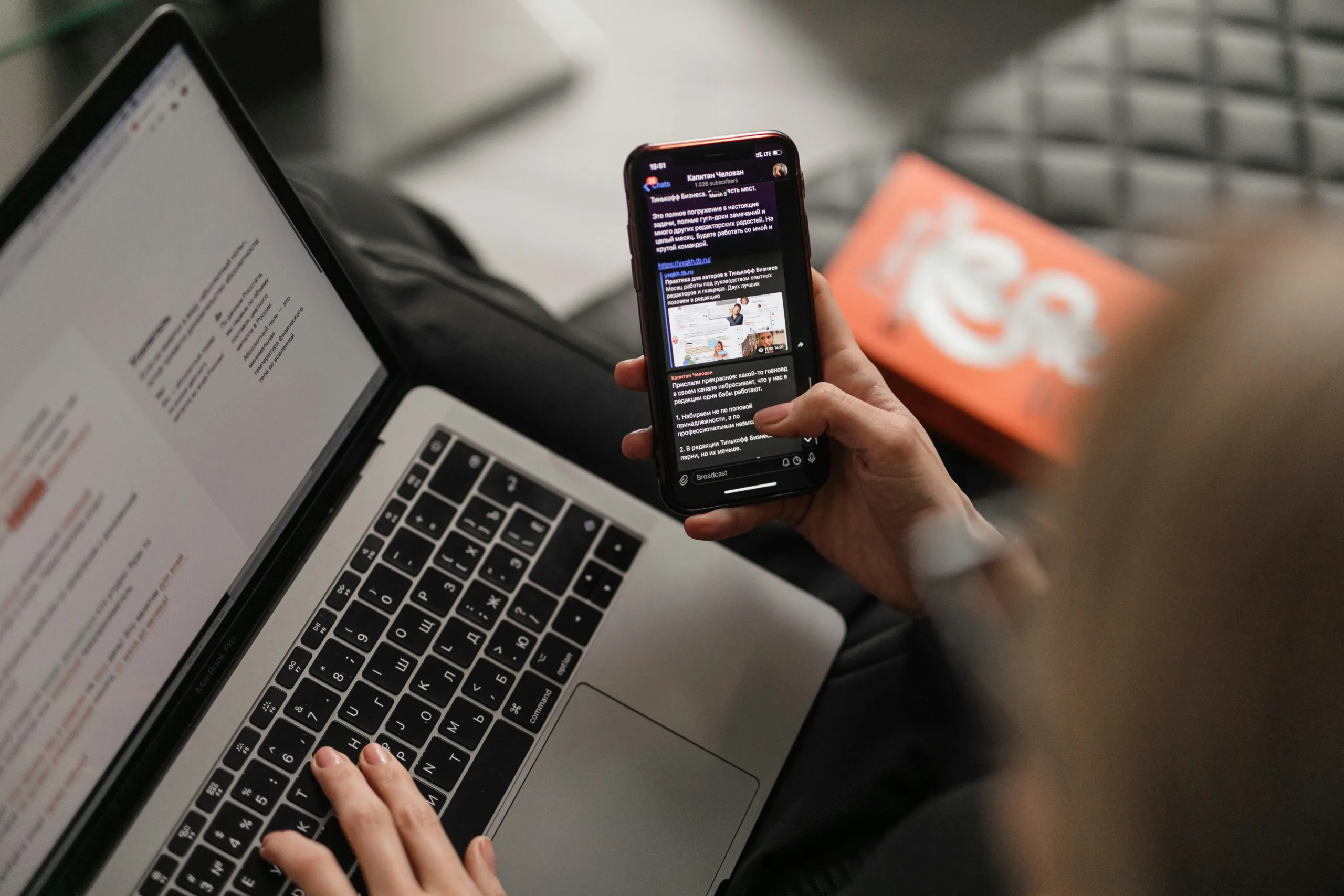Imagine receiving an email from someone at the White House. Now imagine that they wrote to ask you to join them as a speaker at a White House event.
That’s what happened to me in May, and a few weeks later I was in Washington, D.C., as a panelist on the Structure of the Workplace panel at the Summit on Working Families. As if that weren’t enough, I was also asked to contribute to a much smaller roundtable discussion the following day at the Roosevelt Room in the West Wing. It was a gathering for small business owners who could speak to innovative ways they’re working with their employees and running their companies.
Why conversations?
The purpose of the Summit was to “bring together leaders from many different sectors to discuss the specific challenges undermining families’ economic security and identify concrete solutions that can help families — and our nation — move forward together.” They wanted to learn from people running businesses and people on the ground to see what works and how to scale for widespread impact. Rather than forcing change through policies, the hosts wanted to collectively — and culturally — move things forward. It was two days of invested, energized, and intelligent people talking about how to make offices and businesses more accommodating to their employees, and it was an absolute honor to be there.
The Summit Conversations
The plenary events were kicked off with the hosts welcoming guests and listeners. The Center for American Progress (CAP) and the U.S. Department of Labor (DOL) went first, followed by Valerie Jarrett, Vice President Joe Biden, and Second Lady Dr. Jill Biden. What struck me right from the beginning was how amazingly warm, genuine, and poignant they were with their personal stories, as well as their political and policy calls to action.
It was really a powerful collection of voices to hear so early on in a day filled with a lot of invigorating conversations. In fact, within these first few talks, several themes emerged that, over the course of the day, became the major take-away points for me.
What we heard
It takes a village.
For about four years, Biden was a single father juggling the responsibilities of family life and a new, demanding job. In his opening remarks he openly acknowledged that even though he had help, a community that was available to him, and a salary that was considerable, it was still hard for him. For those years, it took a village and he had the smarts to know that without that village, he wouldn’t have made it.
We need flexibility.
The overriding thing that people feel they need is flexibility. A mother shouldn’t have to choose between caring for her child whose school was closed for the day and her job.
We need to value workers.
The minimum wage has to be raised. Hard-working, family-oriented, high-value people are not able to make ends meet with today’s minimum wage. There are entire sectors of workers for which we have enormous expectations about how they do their job, yet whom we aren’t willing to pay enough to live decent lives. Childcare workers, hospice and nursing home employees, and food servers must see adjustments in how they are valued, and then how they’re compensated.
We have to work together.
With unified voices and organized labor there is strength. There are visionary leaders driving to make organizational change, but ultimately it will take a groundswell from the people doing the work to force the issues. Large numbers, and the loudness that comes with large numbers, are required to make the behemoth changes we’re hoping for.
We have a lot of catching up to do.
We are not a leading country on this issue, and the evidence doesn’t suggest that we’re evolving quickly. It’s shameful that other countries have beat us to a culture in which work and home are mutually respected and balanced in a way that serves our families’ needs.
Our work culture disproportionately affect women.
We heard multiple stories of women being discriminated against because of tough situations they found themselves in — sick children, dying parents, or inadequate daycare. Christina Hendricks spoke about her character Joan from Mad Men. She spoke to how Joan, a beautiful, single mother, was discriminated against by nearly everyone. She also made the point that culturally we discuss the show as if it were part of a bygone era, but really some of the issues are more than relevant today. Her rallying point was an excellent one: this is not a women’s issue, it’s an everybody issue. We should all care about it.
But we didn’t just hear from “speakers”
The organizers realized that the big ideas we were talking about had real world consequences for real people. And it was these stories that were going to have an impact. To bring in these stories, all panels and speakers were introduced by “real people” who face the struggles and challenges that the Summit was addressing. They had the chance to tell their own story, before they segued to the speaker introduction. All day, women and men stood on stage and shared powerful accounts of success, respect, hardships, and disadvantages. The message was clear: real people are suffering, and real people want change. They want to do good work and still have a life outside that work.
My conversations on workplace structures
The energy grew all morning, and after listening to several plenary talks and hearing the President speak, everyone was pumped up. And then it was time for my panel: The Structure of the Workplace. Working Mother Media President Carol Evans moderated. The panel included: Andy Shallal, CEO of Busboys and Poets; Kathleen Christensen, Program Director at the Alfred P. Sloan Foundation; and Katherine Archuleta, Director of the Office of Professional Management (OPM).
My Contribution
My position during both my panel and the following day’s roundtable was that we should focus more on culture and conversation than perks and benefits. As a small business owner, I know that Clockwork can’t give Clockworkers all the perks and benefits that a large, multinational corporation can. But what I also know is that many people just want to feel heard, respected, and trusted in their jobs. We give Clockworkers full benefits and have many other traditional perks, but we also give them autonomy and flexibility. I believe that it’s my job to set expectations and generate business, and the rest is up to them.
Valuing conversations over perks means that as a leader, I ask myself things like, “How can we listen to and give employees a say in their work and in their day? How can we support entire families — mothers and fathers — with workplace benefits and cultural support? How can we hear what people need and support them so they can do their best work?”
And then came the Ultimate Conversation…with Michelle
At the end of the day, I was standing behind the stage as Nancy Pelosi, Dr. Judith Rodin, Katherine Phillips, Deborah Lee, and Gloria Steinem spoke. And if that weren’t enough, that’s exactly when I got to meet the First Lady. They escorted a group of us behind the main stage to meet First Lady Michelle Obama. I had the opportunity to thank her for making my family matter. And she encouraged me to keep “living out loud.” I’m so glad I got to say thank you — and the rumors are true: she is lovely, she is a great listener, and she is almost ethereal. Basically, she’s like an angel.
Discussions in the Roosevelt Room
The following day I participated in a roundtable discussion at the Roosevelt Room in the West Wing of the White House. Attendees included Carla Brown, Valerie Jarrett, Tina Tchen, and a selection of state representatives. They were there to hear me and a host of other small business owners talk about the Summit topics on a smaller scale. Other owners included: Jennifer Piallat, CEO and Owner of Zazie; Sarah Bird, CEO of Moz Technology; Mikini Howell, Owner of Plum Bistro Restaurant; Rebecca Hamilton, Director of Product Development at Badger Balm; and Laura Yamanaka, President of teamCFO, Inc., with Cynthia McFadden covering the event for NBC.
The day was essentially an extended conversation about the work we do, how we engage staff, and further explorations of workplace flexibility. Similar to the Summit conversations, flexibility was one of the most dominant topics. I find that even as we try to be innovative in how we engage and support staff, we still have a tendency to be more enamored with the shinier perks. During this discussion the ‘benefit’ that got the most reaction was a vacation allowance distributed by the leadership of a marketing technology firm. They give a few thousand dollars every year to each employee and make them use it to travel. While I love this idea as much as anyone in theory, it isn’t something that all small businesses can even begin to consider. And, after listening for a while, I realized that I’m still the odd man out when it comes to conversations about culture, engagement, and relationships with people. Just because you make a “perk” a policy doesn’t mean that you’re going to have a healthy organization or work culture that embraces that “perk.” Beyond creating policies, we all still have to search for ways to truly engage people and make them feel part of something.
How to talk about engagement
At one point, the group of speakers shared our favorite thing that we’re doing to better support staff. Interestingly, I was the only person who didn’t talk about a directly compensatory benefit. I talked about Clockwork Lab Days (one day a month when Clockworkers work on ideas and innovations outside of project work); the variety of meetings, meetup groups, and events we host and how they keep us connected to the community; and the amount of internal info-sharing we do through weekly newsletters, monthly launch lunches, and our annual unConference. I also talked about the ways we encourage staff to get involved in things they care about out in the world, and how we them support through sponsorship or partnership (like CoderDojo Twin Cities).
My point was that we work hard at creating culture that reflects our values. And we work hard at engaging employees in things that they design and that contribute to their lives.
Again, why conversations?
Policies don’t change people. Conversations change minds, which can change people. And people need to want to participate in change. This isn’t a problem for leadership to solve. It’s an issue that requires involvement and participation at all levels of organizations. Leadership can set the tone of the discussion, but everyone needs to understand, and ultimately, benefit from the movement. We need to talk, share, and work together to create a culture where mothers and fathers have meaningful jobs and meaningful lives. We need to shift how we value certain kinds of work behaviors. We need to focus on results and we need to be willing to try and fail, because change doesn’t happen without failure. I am pretty proud to have been able to be a part of this historic event. And I certainly recognize Clockwork’s role in charting a course and being an example. For that opportunity I am eternally grateful.



